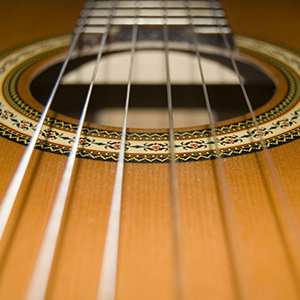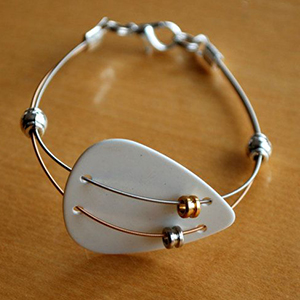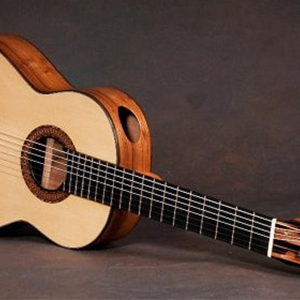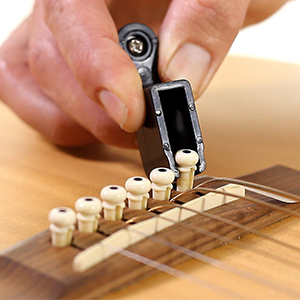- Home
- Instruments
- Gear
- Recording
- Lessons
- Reviews
- Blog

When you start looking for a replacement set of strings for your electric guitar, you won't have to meet even a fraction of criteria acoustic guitar players have to deal with. However, there's a completely different set of things to worry about with electric guitars.
Not every set is suitable for every application. As long as you keep that in mind, you shouldn't have a problem finding the right guitar string set for yourself. This is going to be the topic of our discussion today, and we are going to talk about how different string models affect your overall sound.
 Just like it's the case with any other set of guitar strings out there, you will have to determine which string gauge is right for you. This largely depends on the genre of music you are playing. If you are into metal, you will definitely want to get a heavier set of strings.
Just like it's the case with any other set of guitar strings out there, you will have to determine which string gauge is right for you. This largely depends on the genre of music you are playing. If you are into metal, you will definitely want to get a heavier set of strings.
That way you will have the necessary width when playing heavy rhythm riffs. If you'd like to know more about how strings affect the performance of a guitar, check out our Guitar Strings Explained guide.
On the other hand, if you want to play more tamed genres of music, a light gauge set is a far better solution. With latter, you can perform bends and various other techniques with little to no effort. Just make sure to inspect the guitar periodically if you install a heavier set of strings as they will apply more tension to the neck and body of the guitar.
 Even though the impact material the strings are made of is definitely lower on electric guitars compared to acoustic ones, it still matters. Not only can you choose the material, but you can also choose different winding methods and other features.
Even though the impact material the strings are made of is definitely lower on electric guitars compared to acoustic ones, it still matters. Not only can you choose the material, but you can also choose different winding methods and other features.
Nickel plated steel strings are a good starting point, along with full steel strings. From here, you can gauge the type of sound you get, and which direction you want to go. If you need to go warmer, pure nickel strings work great.
On the other hand, if you simply need your strings to be crispy, getting a titanium set might be the solution. Check out our list of best guitar strings and find out what is currently considered to be the standard within the community.
Among other features, you can go for coated strings or uncoated ones. The difference between these two is how resistant the strings will be to corrosion. If you perform a lot, and you also sweat a lot, investing in a coated set of strings might be the right thing to do.
 Experimenting with different string gauges on seven or eight string guitars requires a bit more caution. Depending on the scale of that guitar, you might be somewhat limited in terms of how heavy you can go.
Experimenting with different string gauges on seven or eight string guitars requires a bit more caution. Depending on the scale of that guitar, you might be somewhat limited in terms of how heavy you can go.
Those extra strings apply an additional amount of tension to the neck of the guitar, so you need to make sure not to go overboard and damage the neck. Low B strings are already pretty thick, even in a standard set. However, once you start hitting heavier gauges, you are already looking to strings which one could say belong on a bass guitar.
 This can't be emphasized enough. One of the leading causes of string damage or failure is improper installment. Make sure to leave enough string to wind the tuning machines several times. Once you tune the guitar, stretch the strings a bit and tune them again.
This can't be emphasized enough. One of the leading causes of string damage or failure is improper installment. Make sure to leave enough string to wind the tuning machines several times. Once you tune the guitar, stretch the strings a bit and tune them again.
Following this procedure will ensure that your strings are seated properly and that the tension is being applied equally. There is nothing more annoying than taking the time to restring the guitar, only to have one of the strings break because you didn't do a proper job.
Most important aspect of choosing guitar strings for an electric guitar is playing comfort. Differences in tone are not that obvious and fall into the category of fine tuning more or less.
If you are not satisfied with the set of strings you have on your guitar at the moment, you should start by replacing them with something more neutral. Once you get used to that set, you will know whether you need to for heavier or lighter sets.

Reader Interactions